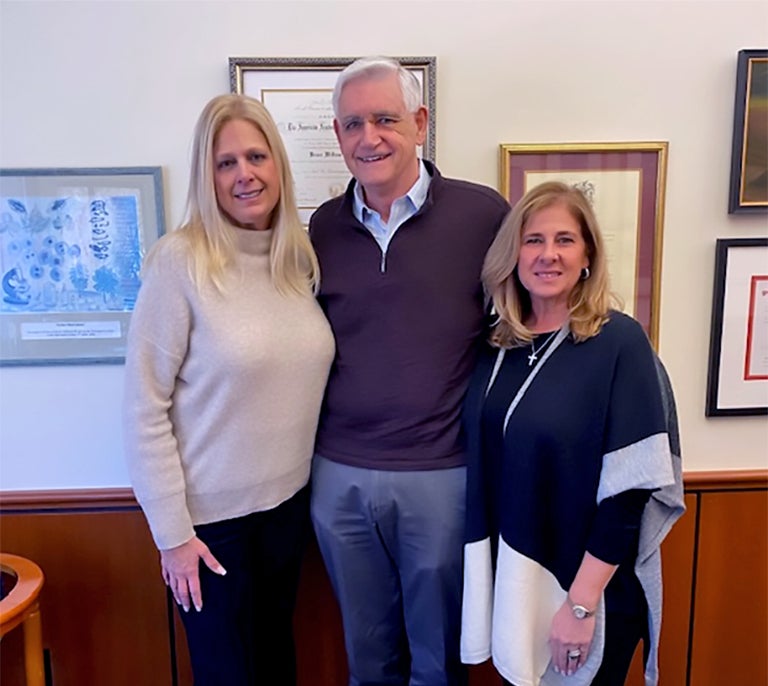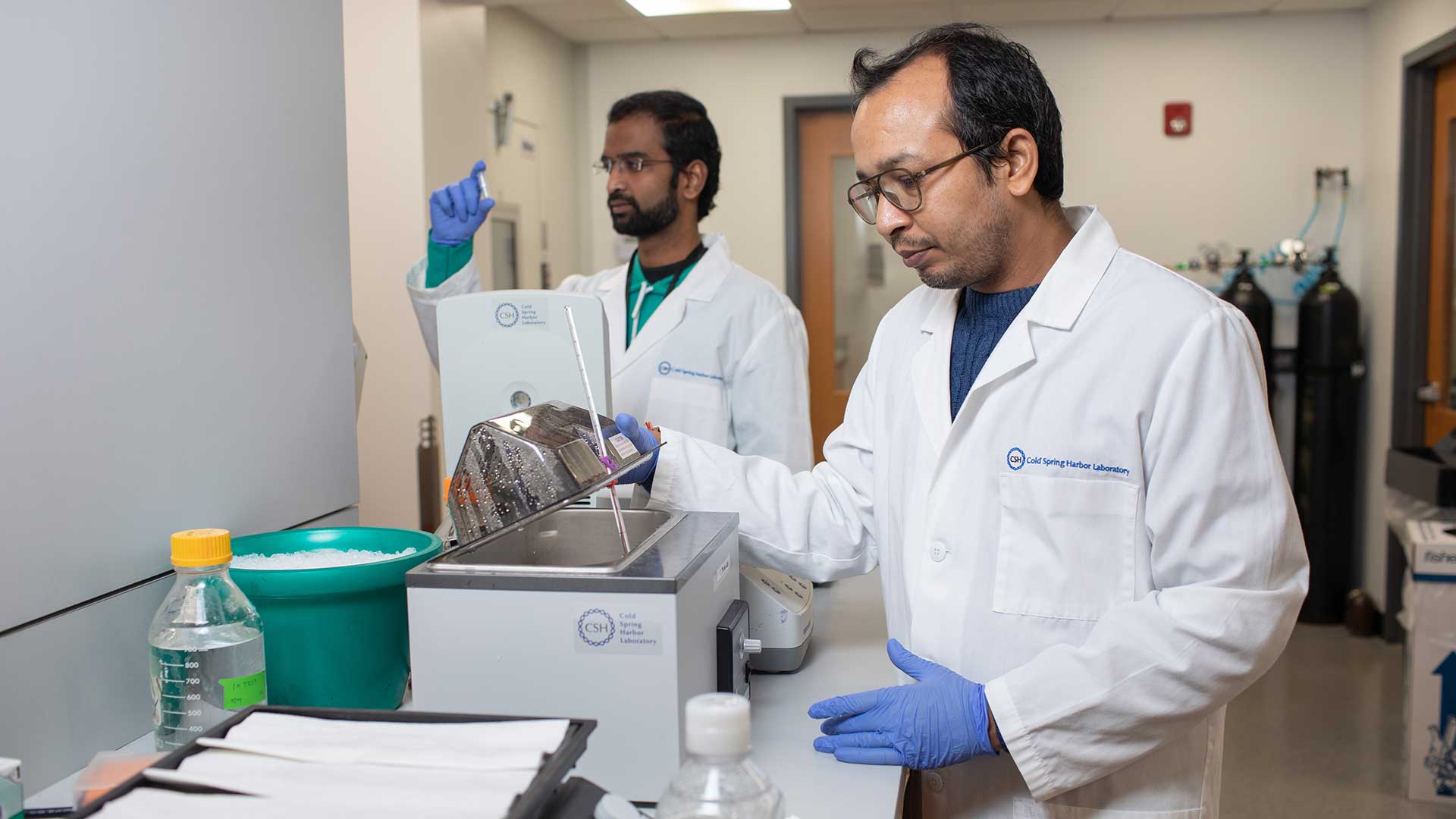In 1972, 16-year-old Don Monti tragically passed away from acute myeloid leukemia (AML), one of the most aggressive forms of blood cancer. Shortly thereafter, his family founded the Don Monti Memorial Research Foundation (DMMRF) to support research aimed at understanding cancer’s growth and eradicating it from the body.

On January 24, the DMMRF donated $100,000 to support Cold Spring Harbor Laboratory (CSHL) Assistant Professor Lingbo Zhang’s pioneering leukemia research. Although often diagnosed in patients 55 and older, leukemia is the most common cancer in children under 15. Since 2007, the DMMRF has donated over $5.8 million to support CSHL’s cancer research. Such donor support has enabled the Zhang lab to make several promising discoveries in recent years, revealing new drug targets for two types of leukemia.
“The support of the Don Monti Memorial Research Foundation is extremely important to my lab’s basic science research,” Zhang says. “It will enable us to explore key fundamental studies, which are capable of laying the foundations for promising novel therapeutics.”
Zhang’s research focuses on revealing the critical roles of nutrients and neural activities in leukemia and its variants. His lab has made several discoveries in AML and myelodysplastic syndrome (MDS), which took the life of the Montis’ dear friend Edward Travaglianti, a longtime board member of CSHL and the DMMRF.
Both types of leukemia currently lack effective treatment options. Zhang is now working with a spin-off company to translate his lab’s discoveries into potential drugs targeting these devastating blood cancers.
“Being that funding from the private sector is more critical than ever, we sincerely appreciate the Don Monti Memorial Research Foundation’s invaluable support in advancing scientific research and innovation,” CSHL President and CEO Bruce Stillman says. “Their generous contributions empower researchers to make groundbreaking discoveries at CSHL that benefit society. Their 2025 funding of Lingbo Zhang’s innovative research in blood cancers is full of exciting promise, and we are hopeful that we will see a clinical trial in the near future.”
Written by: Nick Wurm, Communications Specialist | wurm@cshl.edu | 516-367-5940
